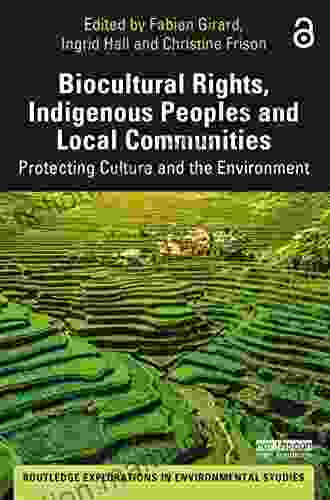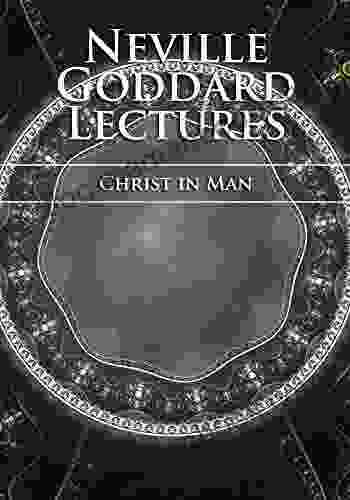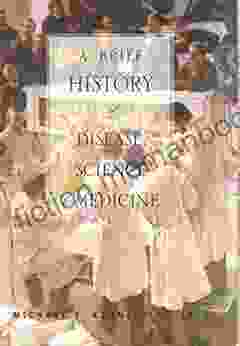Biocultural Rights: Indigenous Peoples and Local Communities' Inalienable Connection to Nature

Biocultural rights encompass the fundamental rights of indigenous peoples and local communities to maintain, control, and develop their unique relationships with the natural world and their traditional knowledge, practices, and technologies.
5 out of 5
| Language | : | English |
| File size | : | 4921 KB |
| Text-to-Speech | : | Enabled |
| Enhanced typesetting | : | Enabled |
| Word Wise | : | Enabled |
| Print length | : | 371 pages |
Historical and Legal Context
The concept of biocultural rights has emerged from the recognition of the vital role that indigenous peoples and local communities play in biodiversity conservation and sustainable development. Throughout history, they have developed intricate knowledge systems and adaptive practices that have ensured the preservation of diverse ecosystems and cultural traditions.
International law has increasingly acknowledged the importance of protecting biocultural rights. The United Nations Declaration on the Rights of Indigenous Peoples (UNDRIP) affirms the right of indigenous peoples to "own, control, use and develop their traditional lands, territories and resources." The Convention on Biological Diversity (CBD) recognizes the role of traditional knowledge in biodiversity conservation and the need to ensure the fair and equitable sharing of benefits derived from genetic resources.
Components of Biocultural Rights
- Right to Land and Resources: Indigenous peoples and local communities have the right to own, control, and manage their traditional lands, territories, and natural resources, including forests, water sources, and wildlife.
- Right to Cultural Identity and Self-Determination: They have the right to maintain and develop their cultural practices, knowledge, and languages, which are essential to their connection to the natural world and their sense of identity.
- Right to Traditional Knowledge: They hold the right to use, protect, and share their traditional knowledge, innovations, and practices related to nature and biodiversity.
- Right to Participation and Consent: They have the right to participate in decision-making processes that affect their biocultural heritage, including conservation and development initiatives.
- Right to Benefit-Sharing: They have the right to fair and equitable sharing of benefits derived from the commercialization of their traditional knowledge and genetic resources.
Importance of Biocultural Rights
Protecting biocultural rights is crucial for several reasons:
- Biodiversity Conservation: Indigenous peoples and local communities are essential stewards of biodiversity, as their traditional practices have maintained healthy ecosystems for generations.
- Cultural Preservation: Biocultural rights help safeguard the unique cultural identities and traditions of indigenous peoples and local communities, which are intricately intertwined with the natural world.
- Sustainable Development: Recognizing and integrating biocultural rights into development plans can lead to more equitable and sustainable outcomes that respect and enhance local knowledge.
- Human Rights and Social Justice: Protecting biocultural rights promotes the rights of marginalized communities and fosters greater equity and inclusion in conservation and development efforts.
Challenges and Opportunities
Indigenous peoples and local communities face challenges in asserting their biocultural rights, including:
- Land Rights Violations: Displacement, land grabs, and resource extraction often infringe upon indigenous lands and territories.
- Cultural Erosion: Colonialism, globalization, and assimilation policies can threaten cultural practices and languages.
- Intellectual Property Rights: Traditional knowledge and genetic resources are often exploited without fair compensation or recognition of their origins.
- Legal Recognition: Strengthening legal frameworks and policies that safeguard biocultural rights at local, national, and international levels.
- Education and Awareness: Raising awareness about the importance of biocultural rights and promoting intercultural understanding.
- Empowerment and Capacity Building: Supporting indigenous peoples and local communities to document and protect their traditional knowledge and practices.
- Collaboration and Partnerships: Fostering partnerships between indigenous peoples, local communities, governments, and conservation organizations.
Despite these challenges, there are opportunities to advance biocultural rights:
Biocultural rights are essential for the well-being of indigenous peoples and local communities, the preservation of biodiversity, and the promotion of sustainable development. By recognizing and protecting these rights, we can ensure a more equitable, inclusive, and sustainable future for all.
5 out of 5
| Language | : | English |
| File size | : | 4921 KB |
| Text-to-Speech | : | Enabled |
| Enhanced typesetting | : | Enabled |
| Word Wise | : | Enabled |
| Print length | : | 371 pages |
Do you want to contribute by writing guest posts on this blog?
Please contact us and send us a resume of previous articles that you have written.
 Top Book
Top Book Novel
Novel Fiction
Fiction Nonfiction
Nonfiction Literature
Literature Paperback
Paperback Hardcover
Hardcover E-book
E-book Audiobook
Audiobook Bestseller
Bestseller Classic
Classic Mystery
Mystery Thriller
Thriller Romance
Romance Fantasy
Fantasy Science Fiction
Science Fiction Biography
Biography Memoir
Memoir Autobiography
Autobiography Poetry
Poetry Drama
Drama Historical Fiction
Historical Fiction Self-help
Self-help Young Adult
Young Adult Childrens Books
Childrens Books Graphic Novel
Graphic Novel Anthology
Anthology Series
Series Encyclopedia
Encyclopedia Reference
Reference Guidebook
Guidebook Textbook
Textbook Workbook
Workbook Journal
Journal Diary
Diary Manuscript
Manuscript Folio
Folio Pulp Fiction
Pulp Fiction Short Stories
Short Stories Fairy Tales
Fairy Tales Fables
Fables Mythology
Mythology Philosophy
Philosophy Religion
Religion Spirituality
Spirituality Essays
Essays Critique
Critique Commentary
Commentary Glossary
Glossary Bibliography
Bibliography Index
Index Table of Contents
Table of Contents Preface
Preface Introduction
Introduction Foreword
Foreword Afterword
Afterword Appendices
Appendices Annotations
Annotations Footnotes
Footnotes Epilogue
Epilogue Prologue
Prologue Stephen Allan
Stephen Allan Federal Aviation Administration Staff
Federal Aviation Administration Staff Caryl Churchill
Caryl Churchill William Shambrook
William Shambrook Carolyn Meyer
Carolyn Meyer Claire Kart
Claire Kart George Gershwin
George Gershwin Andrea Girolamo Gallo
Andrea Girolamo Gallo Celia Genishi
Celia Genishi Lee Vaughan
Lee Vaughan Joel T Nigg
Joel T Nigg Edd Voss
Edd Voss Yyanna Leigh Michaels
Yyanna Leigh Michaels Dan R Lynch
Dan R Lynch Lisa Mills
Lisa Mills Jenn Wisbeck
Jenn Wisbeck Lisa M Schab
Lisa M Schab David Lima
David Lima Howard Blum
Howard Blum Olivia Hawker
Olivia Hawker
Light bulbAdvertise smarter! Our strategic ad space ensures maximum exposure. Reserve your spot today!

 Eric NelsonHow to Prepare for the Dangers of Power Failure | Ultimate Guide to Staying...
Eric NelsonHow to Prepare for the Dangers of Power Failure | Ultimate Guide to Staying... Lee SimmonsFollow ·11.6k
Lee SimmonsFollow ·11.6k Felix HayesFollow ·7.5k
Felix HayesFollow ·7.5k Herbert CoxFollow ·16.6k
Herbert CoxFollow ·16.6k Stephen FosterFollow ·10.6k
Stephen FosterFollow ·10.6k Stephen KingFollow ·12.4k
Stephen KingFollow ·12.4k Ben HayesFollow ·8.2k
Ben HayesFollow ·8.2k Angelo WardFollow ·3.1k
Angelo WardFollow ·3.1k Donald WardFollow ·14.2k
Donald WardFollow ·14.2k
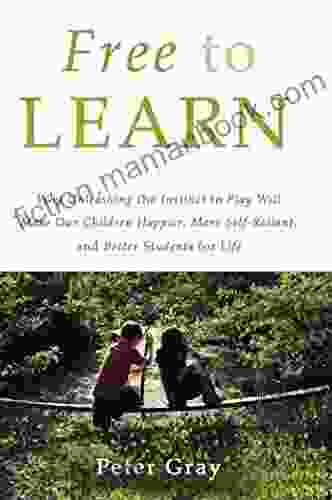
 Abe Mitchell
Abe MitchellWhy Unleashing the Instinct to Play Will Make Our...
Play is an essential part of childhood. It is...
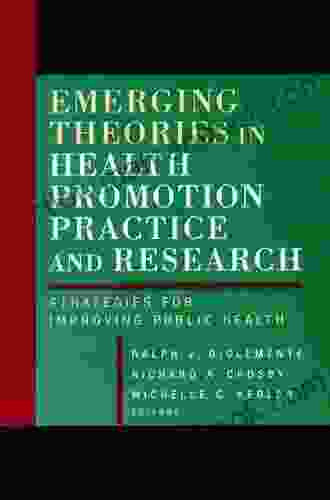
 Rubén Darío
Rubén DaríoTheory in Health Promotion Research and Practice
Theory is essential...

 Howard Blair
Howard BlairFailing Students or Failing Schools: Uncovering the Root...
In the United States, the issue of failing...
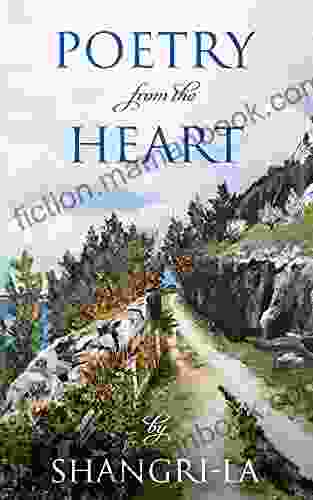
 Ira Cox
Ira CoxPoetry From the Heart Chope: A Symphony of Soul and Verse
Embark on a literary...

 Easton Powell
Easton PowellThe Witch Hunt: Wicked Witches of Shadow Woods
In the cursed woods of...
5 out of 5
| Language | : | English |
| File size | : | 4921 KB |
| Text-to-Speech | : | Enabled |
| Enhanced typesetting | : | Enabled |
| Word Wise | : | Enabled |
| Print length | : | 371 pages |


